Australians serving lengthy or life sentences in foreign jails
THE conditions in many foreign prisons are shocking by our standards. But that didn’t stop these Australians from landing themselves there.
SCHAPELLE Corby. The Bali Nine. Peter Greste.
They’re names synonymous with Australians who, at some stage or another, have found themselves banged up abroad.
There are currently 391 Australians convicted and serving a jail sentence overseas, according to a new report by the Department of Foreign Affairs. That’s up from 371 in 2014—15 and 326 five years ago in 2011—12.
While Corby is now on parole, two of the Bali Nine have been executed and Greste — who was imprisoned in Cairo, Eqypt for reporting which was “damaging to national security” — has been released, there are hundreds of other Australians still languishing in foreign jails.
Some are there for serious crimes including drug trafficking, bribery and murder.
Prison conditions and management are determined by local authorities and vary from country to country and prison to prison, according to the Department of Foreign Affairs and Trade.
In some notorious foreign prisons inmates face a personal hell far worse than they would ever encounter while incarcerated in Australia because of lower standards.
Bali’s Kerobokan Prison, for example, is notorious for its awful sanitary and health problems caused by the filth. On top of personality clashes and infighting among the prisoners themselves, personal effects are regularly stolen from the prisoners by their cell mates. There are no beds. The prisoners sleep on mats or mattresses on the floor, lined up like a camping excursion. The toilets are squat toilets and there is no shower, just an Indonesian-style mandi — a tub of water and a small bucket to pour it over yourself.
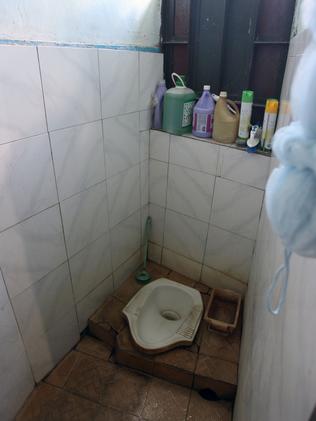
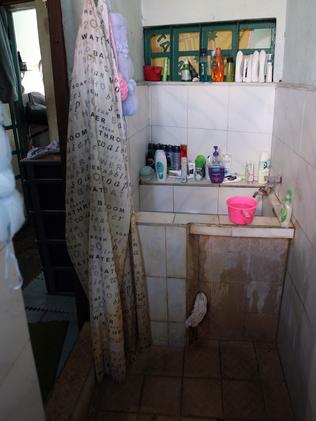
Prison food is rudimentary to say the least and most foreigners in Kerobokan Jail rely on friends or relatives outside to bring them food daily. Health facilities too are poor and things like a toothache can go untreated for long enough for the tooth to rot and fall out. Boredom is a constant.
In the women’s block, there are no libraries and very little to make the days interesting aside from visits. It’s a harsh world and drugs are a big problem inside the jail.
By Australian standards, Kerobokan prison is dreadful place.
But it’s not the only foreign jail that some convicted Australian criminals now call home.
THAILAND
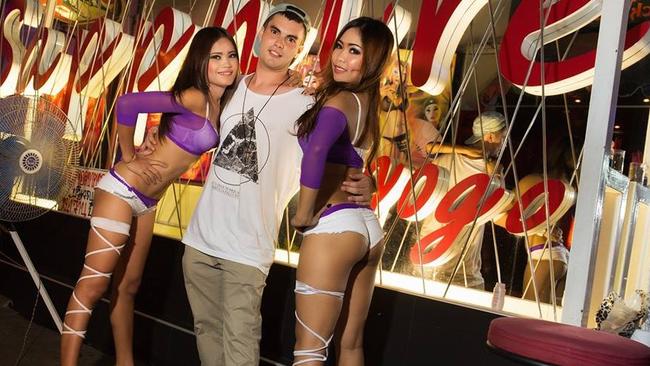
JAKE Mastroianni was a nightclub king who travelled the globe with beautiful women on his arm. But his whole world soon came crashing down.
The Melbourne DJ went from living his dream to behind bars in one of Thailand’s worst prisons where he is serving two life sentences.
Mastroianni, 26, also known as DJ Badmouth, was arrested at the Thai seaside resort of Pattaya for being in possession of about 60 ecstasy pills, alongside Briton, Lance Whitmore who was charged with carrying 200 pills, in 2014.
Having narcotics in Thailand is a serious crime, especially since the Thai government declared a “war on drugs” in 2003.
Mastroianni was given two life sentences and in September 2016 lost an appeal to have that sentence reduced. He will be eligible to apply for a transfer to an Australia prison in six years’ time.
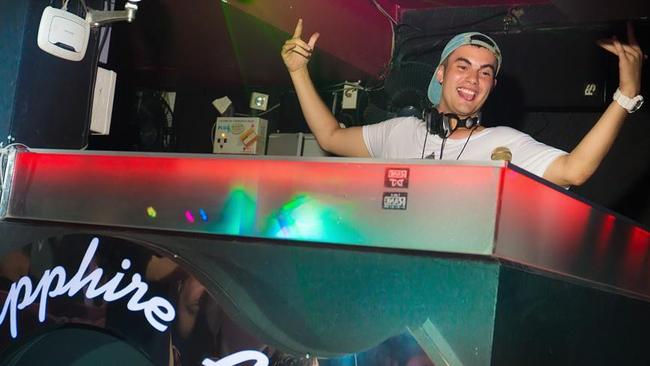
Mastroianni, who attended his appeal hearings shackled and wearing Thai prison clothing, has been in Klong Prem prison in Bangkok since he was arrested two years ago.
The prison has a reputation for harsh living conditions, with up to four prisoners sometimes sharing a cell.
The cells are reportedly about 1.5m x 3.5m and the toilet is just a hole in the ground.
Hidden behind the barbed wire and towering walls are thousands of prisoners, making it Thailand’s largest jail.
According to the Telegraph, prisoners sometimes spend up to 13 hours compacted into their cells and regular drug urine tests are a must.
Diseases spread from cell to cell with even the most dangerous prisoners in fear of contracting them.
There have been reports that prisoners can have relationships on the inside, but only with ladyboys.
Authorities must be made aware of the relationship and a commitment ceremony of some sort needs to take place.
MAURITIUS:
Australian schoolteacher Susan Dalziel had flown from Nairobi to Mauritius when she was arrested upon landing for trafficking $1.5 million worth of heroin in November 2005.
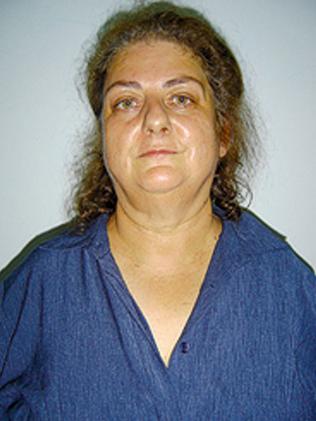
Mauritius authorities found 3.5kg of heroin in a hidden compartment of her luggage. Dalziel, who lived in Kenya at the time, said she was carrying it for a mystery man named “Peter”.
Dalziel continues to maintain she was targeted and used as a decoy for the real smugglers. “Having regard to the huge amount of heroin, the manner in which it was hidden and its street value of 40 million Mauritius rupees, I find that she is a trafficker,” Judge Paul Lam Shang Leen wrote in his case report.
Dalziel, who was not an addict and had no previous offences, pleaded not guilty to drug trafficking, but under the zero tolerance Mauritian policy was sentenced to 28 years in prison.
She continues to serve her time in Mauritius’ maximum security Central Prison, Beau Bassin.
At the time of sentencing she was 52. She’ll be 80 when she’s released.
BULGARIA
SYDNEY man Jock Palfreeman is locked up in Bulgaria’s notoriously run down Sofia Central Prison after being found guilty in 2009 of murder with hooliganism and attempted murder.
Palfreeman is serving a 20-year sentence in spartan conditions for stabbing a Bulgarian man to death and wounding another during a street fight in the country’s capital, Sofia.
Mr Palfreeman said he had no choice and was acting in self-defence.
Having travelled around parts of Europe in late 2007, Mr Palfreeman, 21, arrived in Bulgaria on December 22 to meet up with friends for Christmas.
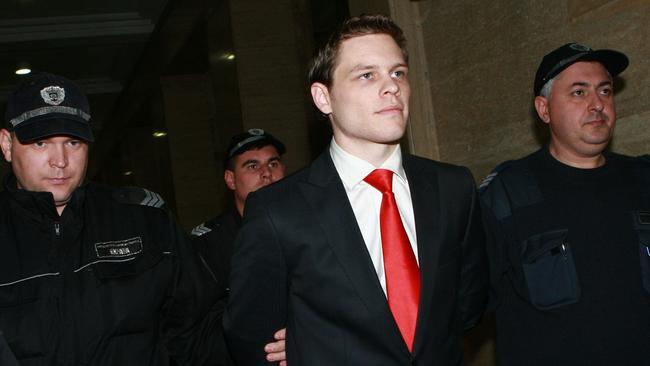
He had been drinking with friends in downtown Sofia and, according to his version of events, witnessed up to 15 young drunken soccer supporters attacking two Roma gypsies on December 28.
He said he went to the gypsies’ aid, and pulled out his knife when the mob turned on him.
During the fight he stabbed to death 20-year-old law student Andrei Monov and wounded Antoan Zahariev, then aged 19.
Mr Monov was the son of a prominent Bulgarian psychologist.
During Mr Palfreeman’s trial, the young Bulgarian men involved on the night denied they’d attacked gypsies.
The gypsies were never identified, or located.
In December 2009, Mr Palfreeman was convicted and sentenced to 20 years’ jail.
He was also ordered to pay more than $320,000 compensation.
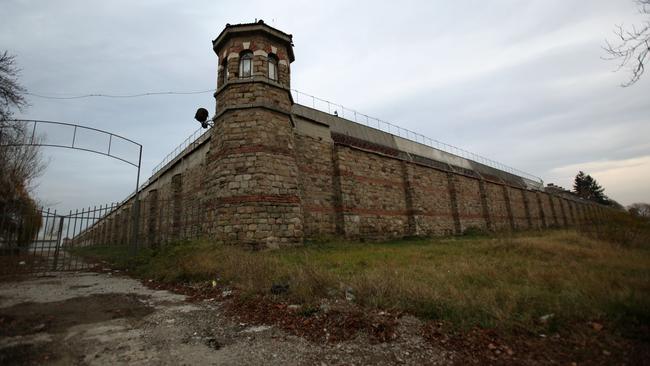
Discrepancies later emerged in evidence given by wounded victim Anton Zahariev.
Mr Palfreeman appealed his conviction and sentence which was rejected in February 2011.
The court concluded the mob pelted Mr Palfreeman with rocks and concrete only after he’d stabbed Mr Monov.
In a final bid, with family backing, he took his fight to the Bulgarian Court of Cassation.
He was reportedly brought in wearing cuffs and leg chains.
“I want a retrial,” he pleaded.
“I did not attack 10 to 15 men without a reason. I did not attack them with the intent to kill them all. I know that they attacked me.”
The Balkan country’s top court rejected the application in July 2011.
“We are disappointed and angry at a decision that maintains such a disregard for evidence and justice,” a shattered Dr Palfreeman said afterwards.
In July 2013, a request by Mr Palfreeman to be transferred to Australia to serve the remainder of his sentence was rejected.
INDONESIA:
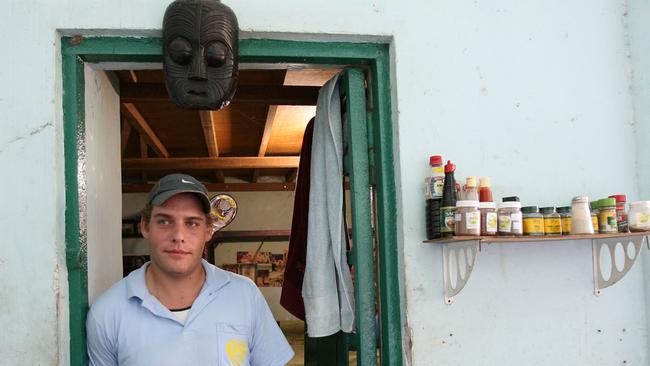
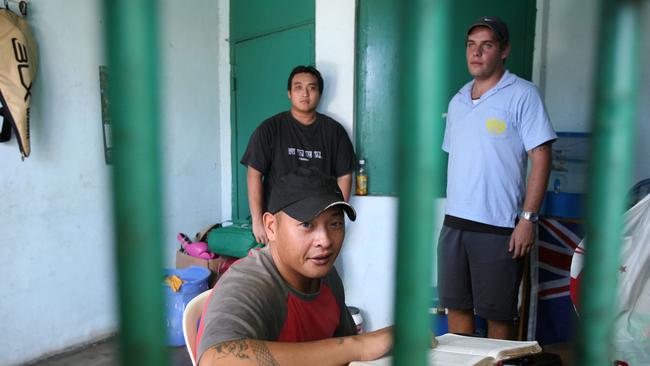
THE surviving Bali Nine members have been locked up in Balinese prisons, including Kerobokan. for about a decade and have many more years to serve.
The group was arrested in 2005 over a plan to smuggle 8.3 kilograms of heroin from Indonesia to Australia with a street value of around $4 million.
Two of the ‘Bali Nine’, Myuran Sukumaran and Andrew Chan, were given the death penalty and executed in 2015.
Si Yi Chen, Michael Czugaj, Tan Duc Thanh Nguyen, Matthew Norman, Scott Rush, Martin Stephens and Renae Lawrence were also sentenced to the death penalty before having it reduced to life imprisonment. Some members of the group have since had their sentences cut to 20 years.
NORTH AMERICA
A MAN who portrayed himself as a modern day Robin Hood remains behind bars in the US.
Corey Donaldson, from Macclesfield, Victoria but was living in the US, robbed a bank in Wyoming of $US140,000.
The author of a relationship self-help book recently lost an attempt to overturn his conviction for the bizarre bank holdup on New Year’s Eve in 2012.
When he was first charged, the jury did not buy his defence — that he was going to give money to charities and the homeless — and announced its guilty verdict after just 50 minutes of deliberations. He was sentenced to 70 months in prison.
Donaldson stuck by his reasoning for the robbery and at trial the court heard how he terrorised a bank manager for 90 minutes by claiming Mexican drug cartel members had placed explosives outside the Jackson Hole bank.
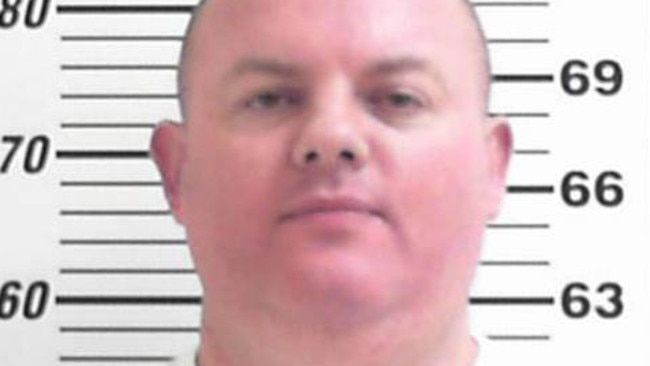
He disguised himself in sunglasses and a driving cap and spoke with a South African accent during the holdup.
Donaldson reportedly said he would blow up the bank and hunt down and kill the manager if $US2 million was not handed over.
The manager needed psychiatric treatment following the holdup.
During his sentencing, Donaldson wept and told stories of growing up in Australia and how a bank foreclosed his family’s home on their four-hectare property.
Donaldson has reportedly pitched his heist story to publishers in the hope of book and film deals.
He continues to serve his sentence at North Carolina’s CI Rivers prison and will be deported back to Australia once completed.




